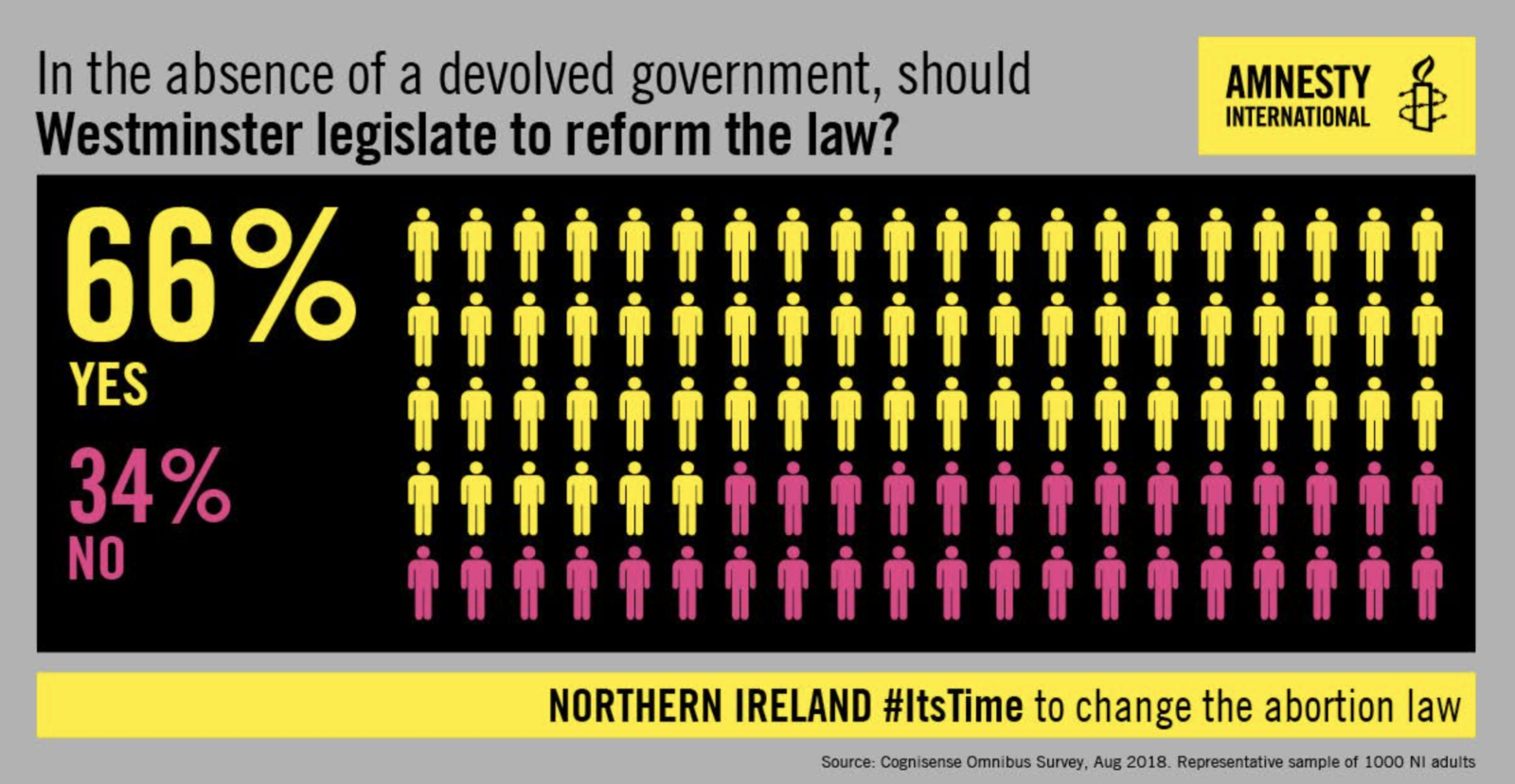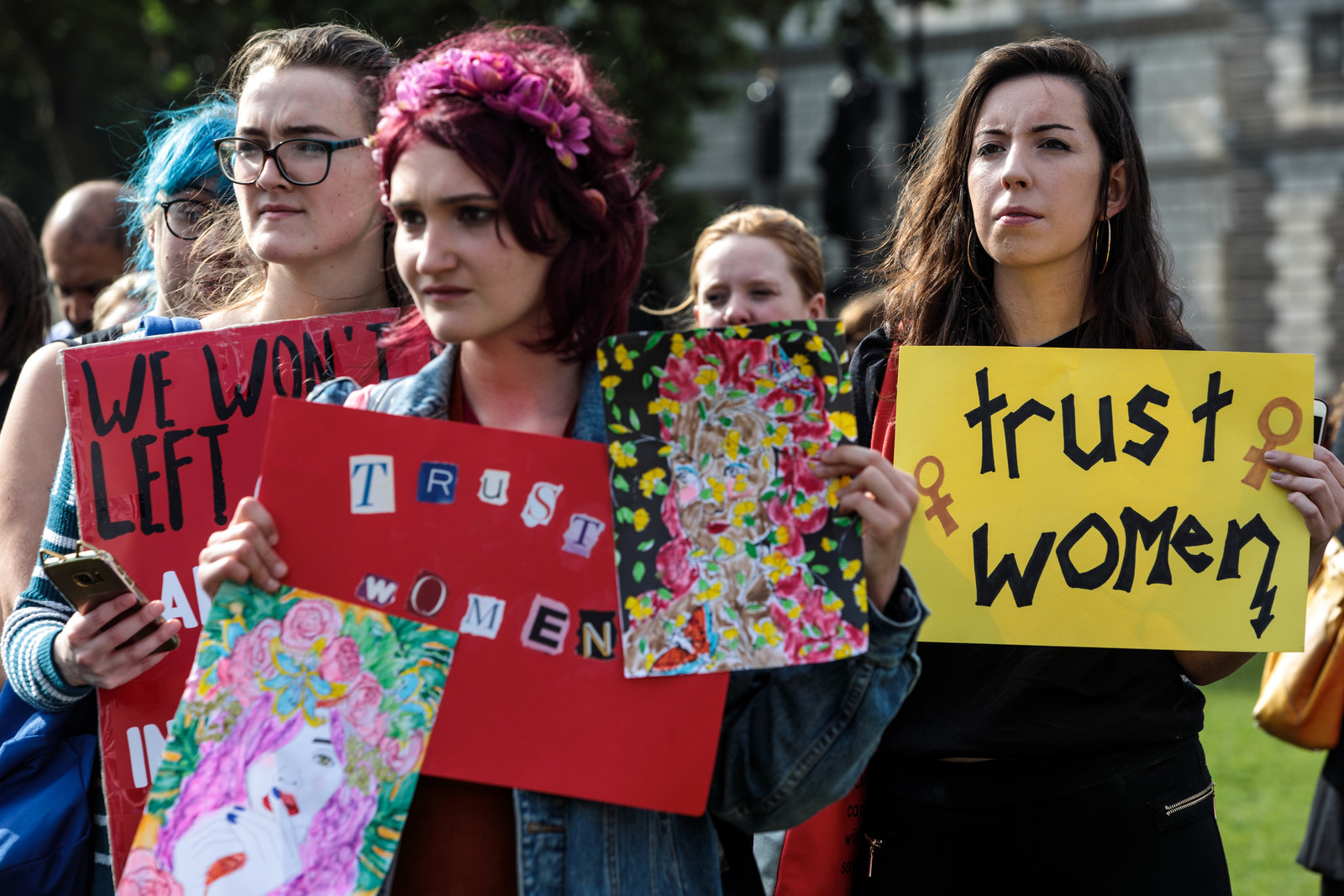
Reforming abortion law in Northern Ireland should be about helping women, rather than being a political issue, according to Conservative MP Maria Miller, who is leading an inquiry into its impact on women who live there.
While legal access to abortion is available in most cases in England, Scotland, and Wales, the procedure is illegal in Northern Ireland unless the mother's life is at immediate risk.
As a result of the strict rules, one mother who obtained abortion pills for her 15-year-old daughter is currently facing the possibility of up to 10 years in jail.
"I can see clear discrimination against women in Northern Ireland where they’re not having access to services that one would expect them to have access to," Miller, who is also the chair of the women and equalities select committee, told BuzzFeed News. "We have responsibility for ensuring the elimination of discrimination against women."
Since launching the inquiry, Miller has travelled to Northern Ireland to learn about the impact of the law firsthand.
"I met women who have had to endure the death of a baby before it’s born, and knowing that would happen yet being unable to take any steps until the baby died to end their pregnancy is heartbreaking," she said.
"It can’t be the intent of Northern Ireland policies to create that kind of heartbreak."

Abortion law is devolved in Northern Ireland, but its government has not sat in Stormont since January 2017 following a collapse in negotiations around power sharing. Abortion rights activists have repeatedly called for intervention from Westminster, which has focused on restoring power-sharing talks so reform can happen locally.
"I think it's hugely important to have Stormont up and running," Miller said. "People in Northern Ireland deserve a government and why should they be disenfranchised by politicians who cannot find a way of working together?"
But Miller felt it was important that abortion did not become embroiled in the politics of devolution. "This is entirely separate to that," Miller said. "Women suffering in Northern Ireland is much more important than that."
Miller's comments come as research published today by Amnesty International shows that the majority of people in Northern Ireland support a change to abortion law, including 66% of those surveyed who would support reform led by Westminster.

In a poll of 1,000 Northern Irish adults conducted in August and September of this year, 65% believed that having an abortion should not be a crime, and 80% thought a woman should have the choice of an abortion when her health is at risk or because a woman is pregnant as a result of incest.
A total of 73% agree that the woman should have the choice of abortion in cases of fatal foetal abnormality.
In a short film released by the British Pregnancy Advisory Service, one of England's largest abortion providers and an advocate for abortion reform in Northern Ireland, 18-year-old Emma, who has withheld her last name, describes her experience of discovering at 20 weeks pregnant that her baby had anencephaly, a fatal condition where the skull does not form properly.
Emma, who did not feel able to travel to England for an abortion, makes a direct plea for Westminster to intervene so that women in her position in future can receive abortion care in their home country.
"In my eyes I don’t think it is a devolved issue. … People are directly affected by this every single day, and I’m one of those people," she said.
Goretti Horgan, a women's rights activist and social policy researcher at Ulster University in Derry, told BuzzFeed News that Amnesty's findings on strong public support for reform confirmed what those close to the issue had known for some time.
Horgan hopes to see a full decriminalisation of abortion, which could replace criminal sanctions with medical regulation across the UK, particularly because of an increase in the number of women buying abortion pills online and carrying out the procedure at home. In England, Scotland, and Wales it is now legal to take the abortion pill at home when prescribed by a doctor.

"The availability of abortion pills over the internet makes decriminalisation an urgent necessity," Horgan said.
"Women here who take the pills to self-manage abortions fear prosecution and so are loath to seek medical assistance even when they fear that they are one of the very rare cases where there are complications from medical abortions.
"We urgently need to make sure that this fear is lifted so women and other pregnant people in Northern Ireland are able to access appropriate medical care."
On Wednesday Labour MP Diana Johnson will launch a 10-minute rule bill on the decriminalisation of abortion, proposing the repeal of sections of 58 and 59 of the Offences Against the Person Act 1861, the law prohibiting abortion in Northern Ireland. It would render the Abortion Act 1967 redundant and pave the way for a medically regulated framework. While the current law in England, Scotland, and Wales allows abortion in a wide range of circumstances, many consider it flawed.
In March 2017, a similar bill put forward by Johnson won cross-party support but fell at the early close of parliament, which ended early due to the general election. Johnson's new bill will be heard in the House of Commons on Oct. 23.
